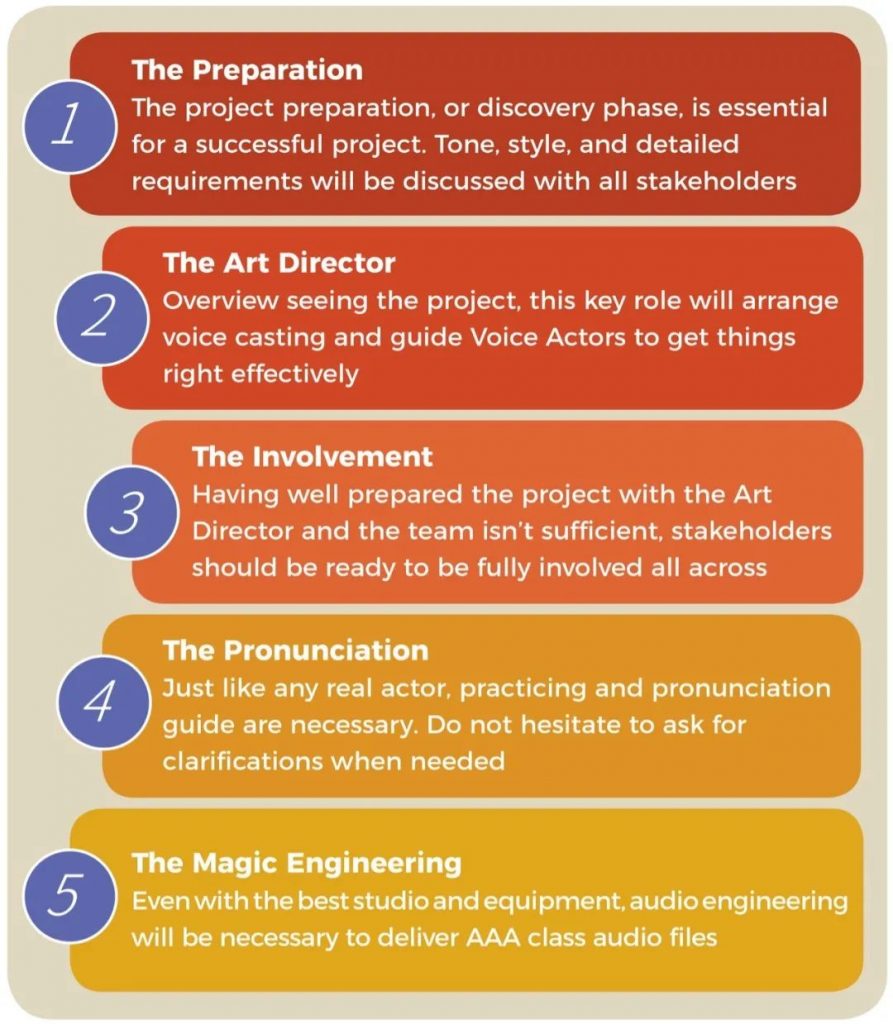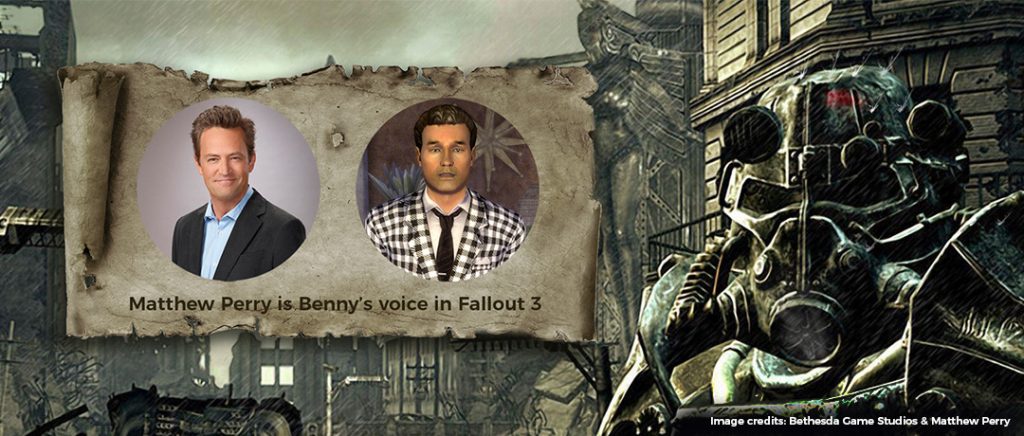Voiceover is a fast-developing industry. According to the Report on the Global Voice Over Market by an online global voiceover marketplace, voiceover industry has an estimated $4.4 billion in jobs completed annually by voice actors worldwide as of 2015 (most recent data published). Because volume is increasing, the unavoidable Human vs. Machine also applies here, synthetic voice technology companies are also growing. That being said, it is commonly agreed that a human voice conveys a better message compared to a synthetic voice and therefore very much like the translation and localization world the human, Voice Talents included, still have a long future ahead. Similarly, sectors like E-learning, Corporate, Medical, Explainer narration, Animation and Commercials are now embracing the value of voiceovers. Because Clearly Local is seeing a boom in demand for multilingual voiceover projects, we are writing a Voiceover Series Article and our first article will touch on Video Games Voiceover.
WHY VOICE ACTING ISN’T AN EASY GAME?
For those who have played video games, you would know that in-game voiceovers are very particular and often demand acting out emotions in the voice rather than reading the script used for corporate video or eLearning. That’s definitely part of what makes a video game successful while offering an immersive experience to the players. For others who have never played video games before, you will certainly understand this topic after reading through this article.
The diversity of voices is critical to distinguish the various game characters. Voicing for a video game is very demanding. The video game characters can include real people but also monsters, animal-like characters, etc. Voice Actors must create a convincing and conversational delivery for the characters. For instance, when a player makes choices about a character at the beginning of the game, they need to feel that the voice fits the style of the character. Imagine you are a player, you like the look and feel of a particular hero who is big and muscular, you expect a deep and strong voice, but when selecting the hero his voice rises and it turns out to be a teenage voice breaking.
Most of the video games will have multiple characters, think of Mario Kart from the 1980’s, so many different characters to select with each of their own specific character traits. Well nowadays games can have many more characters or heroes even up to the hundreds, with a mix in gender, human vs. non-human, different age, cultural background, etc. That is why performing voiceover recording could become a massive challenge if you do not have the expertise, the technology or the professional network of resources.
In addition with video games, having a large volume of script lines makes video game voieover project really resource intensive.
HOW VIDEO GAME VOICEOVER CAN BE FACILITATED
Here below are our professional suggestions for a flawless voiceover project to give your game an international and local appeal.

1. Tone
Initiate preliminary communication with the video game project owner to determine precisely the requirements on the voice type. Determine the voice type or tone for each character, with ideally a description of the characters’ personality. Consider whether the tone of the voice should vary according to each language market. In the U.S., enthusiasm and hyperbole can be commonly found, but such tone and extent could be viewed as exaggerated in Germany, where a factual, instructional style seems more credible.
2. Art Director
Organize professional casting based on the detailed requirement and only select the ones that meet the requirements and who your Art Director, or alternatively your team, find fit. Be active in the casting from the beginning. Art Directors are highly recommended to direct the actors in terms of dialogue and type of content by outlining character profiles with first names, gender, ethnic background, age and basic personality traits for more realistic portrayal. Sometimes, Voice Actors do not even know the character they are playing. Detailed profiling will therefore help in the long run.
3. Be part of the casting
Send selected voice actor samples to the video game project owner for review and selection. Ask for project-specific samples, encourage voiceover actors to record a small sample of the script to see if they are appropriate in the role. If this is not possible, ask for samples that are relevant in genre to the project.
4. Pronunciation
Prior to recording, make sure that the voice actors read the script to become familiar with the pronunciation of creative terms which often happens in video games. Allowing the voiceover actors to adjust and adapt to the game content in the target languages will facilitate the synching process, saving time and money. A pronunciation guide for the recording can also be helpful.
5. Audio Engineering
Use audio editing engineering process to edit recordings for quality assurance, clean the audio files, and properly name audio files. Make sure linguistic quality assurance can be done with native speakers.
CONCLUSION
Video game voiceover is a very particular industry that requires Voice Actors (as opposed to voice talents more commonly found and used for eLearning, commercial, etc). Voice Actors are trained, and are skilled at expressing various emotions at all emotional levels, follow directions and are versatile when portraying different roles. Video game localization including multilingual voiceover, was once limited almost completely to fan translation in all but a few select countries outsourced to professional teams. Throughout the last two decades, however, the practice has spread beyond those countries and has become an important field of translation around the world. At Clearly Local we embrace this trend. And we have developed a solid network of voice actors. We also have partnership with amazing Art Directors and studios as well as an experienced team in game localization. Voiceover industry will continue to grow and it is thus vital to stay ahead of the game.
